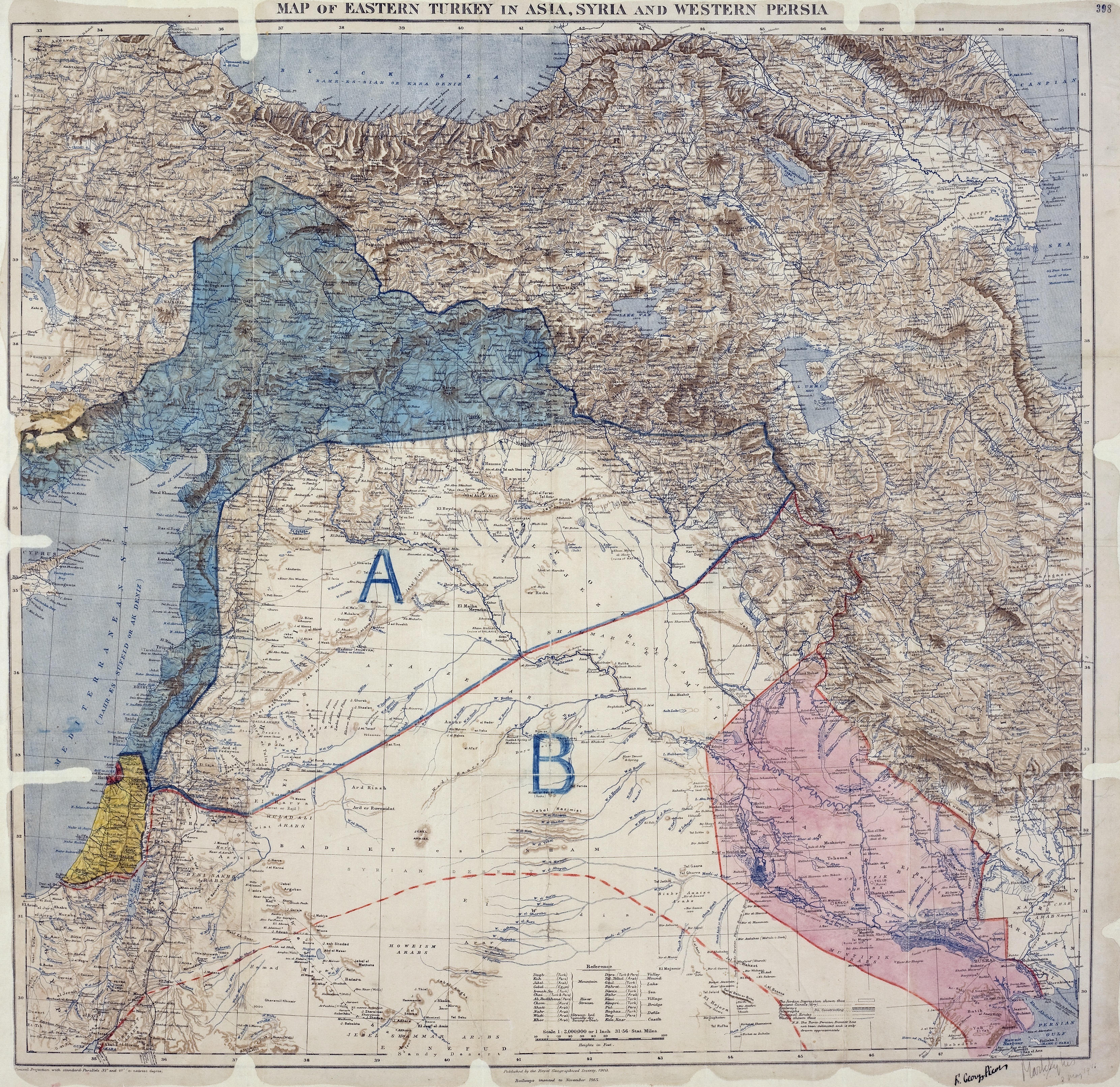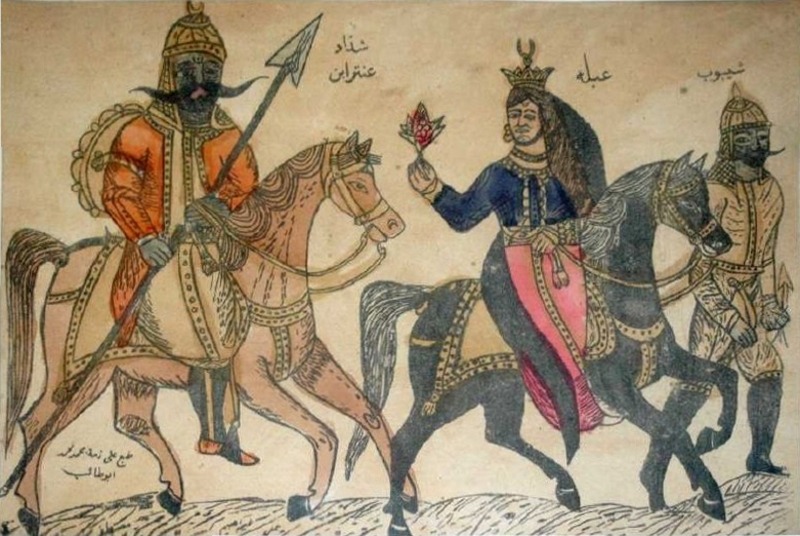|
Great Syrian Revolt
The Great Syrian Revolt ( ar, الثورة السورية الكبرى) or Revolt of 1925 was a general uprising across the State of Syria and Greater Lebanon during the period of 1925 to 1927. The leading rebel forces comprised fighters of the Jabal Druze State in southern Syria, joined by Sunni, Druze, Alawite, and Christian factions. The common goal was to end French rule in the newly mandated regions, passed from Turkish to French administration following World War I. This revolution came in response to the repressive policies pursued by the French authorities under the Mandate for Syria and Lebanon, in dividing Syria into several occupied territories. The new French administration was perceived as being prejudiced against the dominant Arab culture and of intending to change the existing character of the country. In addition resentment was caused by the refusal of the French authorities to set a timetable for the independence of Syria. This revolution was an extension of ... [...More Info...] [...Related Items...] OR: [Wikipedia] [Google] [Baidu] |
Majdal Shams
Majdal Shams ( ar, مجدل شمس; he, מַגְ'דַל שַׁמְס) is a Druze town in the southern foothills of Mount Hermon, north of the Golan Heights, known as the informal "capital" of the Golan Heights. The majority of residents are Syrian Druze. Since the June 1967 Six-Day War, the village has been held by Israel as part of its military occupation of the Golan Heights, first under martial law, but since the adoption of the 1981 Golan Heights Law under Israeli civil law, and incorporated into the Israeli system of local councils. Majdal Shams is the largest of the four remaining Syrian Druze communities on the Israeli-occupied side of Mount Hermon and the Golan Heights, together with Ein Qiniyye, Mas'ade and Buq'ata. Geologically and geographically a distinction is made between the Golan Heights and Mount Hermon, the boundary being marked by the Sa'ar Stream; however, administratively usually they are lumped together. Majdal Shams and Ein Qiniyye are on the Hermon s ... [...More Info...] [...Related Items...] OR: [Wikipedia] [Google] [Baidu] |
Druze
The Druze (; ar, دَرْزِيٌّ, ' or ', , ') are an Arabic-speaking esoteric ethnoreligious group from Western Asia who adhere to the Druze faith, an Abrahamic, monotheistic, syncretic, and ethnic religion based on the teachings of Hamza ibn Ali ibn Ahmad and ancient Greek philosophers like Plato, Aristotle, Pythagoras, and Zeno of Citium. Adherents of the Druze religion call themselves " the Monotheists" or "the Unitarians" (''al-Muwaḥḥidūn''). The Epistles of Wisdom is the foundational and central text of the Druze faith. The Druze faith incorporates elements of Isma'ilism, Christianity, Gnosticism, Neoplatonism, Zoroastrianism, Buddhism, Hinduism, Pythagoreanism, and other philosophies and beliefs, creating a distinct and secretive theology based on an esoteric interpretation of scripture, which emphasizes the role of the mind and truthfulness. Druze believe in theophany and reincarnation. Druze believe that at the end of the cycle of rebirth, which is achie ... [...More Info...] [...Related Items...] OR: [Wikipedia] [Google] [Baidu] |
Mandate (politics)
In representative democracies, a mandate (or seat) is the authority granted by a constituency to act as its representative. Elections, especially ones with a large margin of victory, are often said to give the newly elected government or elected official an implicit mandate to put into effect certain policies.Glossary , Elections ACT. Jul 2012. http://www.elections.act.gov.au/glossary (cf., ''The Government's claim that once elected they have the right and responsibility to implement their policies''.) When a government seeks re-election they may introduce new policies as part of the campaign and are hoping for approval from the voters, and say they are seeking a "new mandate". Governments and elected officials may use language of a "mandate" to lend legitimacy to actions that they take in office. In some languages, a "mandate" can mean a parliamentary seat won in an election rather than the electoral victory itself. In case such a mandate is bound to the wishes of the electora ... [...More Info...] [...Related Items...] OR: [Wikipedia] [Google] [Baidu] |
Ottoman Empire
The Ottoman Empire, * ; is an archaic version. The definite article forms and were synonymous * and el, Оθωμανική Αυτοκρατορία, Othōmanikē Avtokratoria, label=none * info page on book at Martin Luther University) // CITED: p. 36 (PDF p. 38/338) also known as the Turkish Empire, was an empire that controlled much of Southeast Europe, Western Asia, and Northern Africa between the 14th and early 20th centuries. It was founded at the end of the 13th century in northwestern Anatolia in the town of Söğüt (modern-day Bilecik Province) by the Turkoman tribal leader Osman I. After 1354, the Ottomans crossed into Europe and, with the conquest of the Balkans, the Ottoman beylik was transformed into a transcontinental empire. The Ottomans ended the Byzantine Empire with the conquest of Constantinople in 1453 by Mehmed the Conqueror. Under the reign of Suleiman the Magnificent, the Ottoman Empire marked the peak of its power and prosperity, as well a ... [...More Info...] [...Related Items...] OR: [Wikipedia] [Google] [Baidu] |
German Empire
The German Empire (),Herbert Tuttle wrote in September 1881 that the term "Reich" does not literally connote an empire as has been commonly assumed by English-speaking people. The term literally denotes an empire – particularly a hereditary empire led by an emperor, although has been used in German to denote the Roman Empire because it had a weak hereditary tradition. In the case of the German Empire, the official name was , which is properly translated as "German Empire" because the official position of head of state in the constitution of the German Empire was officially a "presidency" of a confederation of German states led by the King of Prussia who would assume "the title of German Emperor" as referring to the German people, but was not emperor of Germany as in an emperor of a state. –The German Empire" ''Harper's New Monthly Magazine''. vol. 63, issue 376, pp. 591–603; here p. 593. also referred to as Imperial Germany, the Second Reich, as well as simply Germany, ... [...More Info...] [...Related Items...] OR: [Wikipedia] [Google] [Baidu] |
Austria-Hungary
Austria-Hungary, often referred to as the Austro-Hungarian Empire,, the Dual Monarchy, or Austria, was a constitutional monarchy and great power in Central Europe between 1867 and 1918. It was formed with the Austro-Hungarian Compromise of 1867 in the aftermath of the Austro-Prussian War and was dissolved shortly after its defeat in the First World War. Austria-Hungary was ruled by the House of Habsburg and constituted the last phase in the constitutional evolution of the Habsburg monarchy. It was a multinational state and one of Europe's major powers at the time. Austria-Hungary was geographically the second-largest country in Europe after the Russian Empire, at and the third-most populous (after Russia and the German Empire). The Empire built up the fourth-largest machine building industry in the world, after the United States, Germany and the United Kingdom. Austria-Hungary also became the world's third-largest manufacturer and exporter of electric home appliances, ... [...More Info...] [...Related Items...] OR: [Wikipedia] [Google] [Baidu] |
Russian Empire
The Russian Empire was an empire and the final period of the Russian monarchy from 1721 to 1917, ruling across large parts of Eurasia. It succeeded the Tsardom of Russia following the Treaty of Nystad, which ended the Great Northern War. The rise of the Russian Empire coincided with the decline of neighbouring rival powers: the Swedish Empire, the Polish–Lithuanian Commonwealth, Qajar Iran, the Ottoman Empire, and Qing China. It also held colonies in North America between 1799 and 1867. Covering an area of approximately , it remains the third-largest empire in history, surpassed only by the British Empire and the Mongol Empire; it ruled over a population of 125.6 million people per the 1897 Russian census, which was the only census carried out during the entire imperial period. Owing to its geographic extent across three continents at its peak, it featured great ethnic, linguistic, religious, and economic diversity. From the 10th–17th centuries, the land ... [...More Info...] [...Related Items...] OR: [Wikipedia] [Google] [Baidu] |
World War I
World War I (28 July 1914 11 November 1918), often abbreviated as WWI, was one of the deadliest global conflicts in history. Belligerents included much of Europe, the Russian Empire, the United States, and the Ottoman Empire, with fighting occurring throughout Europe, the Middle East, Africa, the Pacific, and parts of Asia. An estimated 9 million soldiers were killed in combat, plus another 23 million wounded, while 5 million civilians died as a result of military action, hunger, and disease. Millions more died in genocides within the Ottoman Empire and in the 1918 influenza pandemic, which was exacerbated by the movement of combatants during the war. Prior to 1914, the European great powers were divided between the Triple Entente (comprising France, Russia, and Britain) and the Triple Alliance (containing Germany, Austria-Hungary, and Italy). Tensions in the Balkans came to a head on 28 June 1914, following the assassination of Archduke Franz Ferdin ... [...More Info...] [...Related Items...] OR: [Wikipedia] [Google] [Baidu] |
Council Of Ministers (Syria)
The Cabinet of Syria (Arabic: مجلس وزراء سوريا, majlis wuzara' suria) or Council of Ministers is the chief executive body of the Syrian Arab Republic. Cabinet in Constitution According to the Constitution of Syria: Appointment, powers and removal Appointment: *Appointed by the President Powers: *Implementing state public policy *Enforcing laws *Supervising government bodies *Passing administrative decisions *Advising the President Removal: *Upon dismissal by the President *Upon submission of resignation to the President *Upon removal or resignation of the President *Upon a vote of no-confidence by the legislature Current cabinet President Bashar al-Assad accepted the entire cabinet's resignation after a meeting on 29 March 2011. Al-Assad then appointed outgoing Prime Minister Muhammad Naji al-Otari to continue as caretaker prime minister until a new government is appointed. On 3 April 2011, Assad appointed Minister of Agriculture Adel Safar the new Prime Min ... [...More Info...] [...Related Items...] OR: [Wikipedia] [Google] [Baidu] |
Arab Culture
Arab culture is the culture of the Arabs, from the Atlantic Ocean in the west to the Arabian Sea in the east, and from the Mediterranean Sea in the north to the Horn of Africa and the Indian Ocean in the southeast. The various religions the Arabs have adopted throughout their history and the various empires and kingdoms that have ruled and took lead of the Arabian civilization have contributed to the ethnogenesis and formation of modern Arab culture.Language, literature, gastronomy, art, architecture, music, spirituality, philosophy and mysticism are all part of the cultural heritage of the Arabs. The Arab world is sometimes divided into separate regions depending on different cultures, dialects and traditions including: • The Levant: Lebanon, Syria, Palestine and Jordan. • Egypt • Mesopotamia (Iraq). • The Arabian Peninsula: Kuwait, Bahrain, Qatar, Saudi Arabia, Oman, Yemen and the United Arab Emirates. • Sudan • The Maghreb: Libya, Tunisia, Algeria, Morocco ... [...More Info...] [...Related Items...] OR: [Wikipedia] [Google] [Baidu] |
Mandate For Syria And Lebanon
The Mandate for Syria and the Lebanon (french: Mandat pour la Syrie et le Liban; ar, الانتداب الفرنسي على سوريا ولبنان, al-intidāb al-fransi 'ala suriya wa-lubnān) (1923−1946) was a League of Nations mandate founded in the aftermath of the First World War and the partitioning of the Ottoman Empire, concerning Syria and Lebanon. The mandate system was supposed to differ from colonialism, with the governing country intended to act as a trustee until the inhabitants were considered eligible for self-government. At that point, the mandate would terminate and an independent state would be born. During the two years that followed the end of the war in 1918—and in accordance with the Sykes–Picot Agreement signed by Britain and France during the war—the British held control of most of Ottoman Mesopotamia (modern Iraq) and the southern part of Ottoman Syria ( Palestine and Transjordan), while the French controlled the rest of Ottoman Syria, Leba ... [...More Info...] [...Related Items...] OR: [Wikipedia] [Google] [Baidu] |



